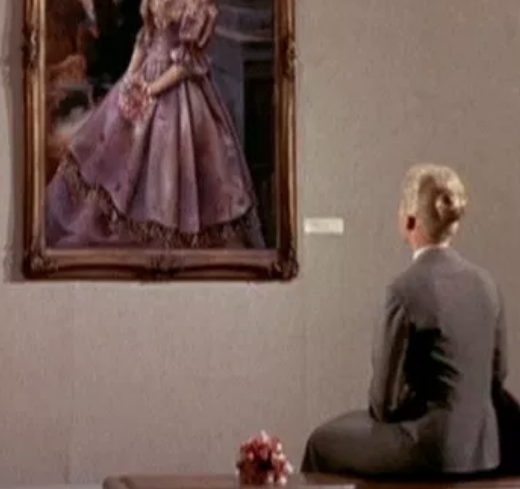The worst prejudice of them all
I was awakened about 3am last night by my alter ego, Scott Slumber. He seemed very upset and had me dictate a blog post. I was only able to scribble down a small part of what he said, as his speech was rambling and erratic. Here’s what I got:
I am sick and tired of the attitude of the awake world to the sleeping world. They look down on us as if we are inferior—all this talk about “real life”, as if their lives are more real than ours. Just the opposite is true; we have a much richer life, comprised of a mixture of worry and pain-free oblivion, and a rich dream world that’s far more “real” than their awake world. How much richer? Recall how The Wizard of Oz transitions from a drab grey opening to a glorious color fantasia, and then back to black and white. I use this example not because color film is better than black and white (we may not even dream in color), but because it’s a metaphor for how dreams are richer than waking hours. In dreams you move through a sort of ether of meaning, as if some momentous reality is just beyond your grasp. Even the best parts of life, such as watching a David Lynch film, cannot quite capture the feeling. That’s not to say there aren’t downsides; the “eternal return” to searching for that exam that you forgot to study for—but waking life also has its ups and downs.
I’ve known all of this for a long time, but what’s really got me agitated is the sudden increase in anti-sleepworld prejudice. For instance:
1. While “wake up” has often been used as a metaphor for intellectual awakening, the millennials have added on a new insult; “woke” is being used as a metaphor for moral superiority. Actually, just the opposite is true. I can shoot someone in the middle of Times Square, and no one cares. Unless you are Donald Trump, that’s not true of the awake world. I can engage in guilt-free forbidden love that you can only dream of experiencing . . . and no one gets hurt. The dream world is a moral paradise. When people speak of someone being “woke”, it reminds me of when I was young and you’d still hear people say, “that’s very white of you”—as a compliment!
2. As if that’s not bad enough, we have bloggers speculating about a technology that allows sleep hours to be bought and sold, like slaves. You might ask, “What’s wrong with that, if it’s done freely? Aren’t you a libertarian?” Yes, but the awake will end up selling the sleepers without even consulting them. Of course there are a few “woke” people who understand the value of sleep, but if you look at the comment section after the sleep market post you see the same sort of rampant bigotry that occurs when bloggers discuss immigration and diversity. People were positively gleeful about the thought of using money and technology to kill off their sleep world alter egos, and stay awake 24 hours a day. Disgusting. How could they do this to us after all we’ve done for them? We’ve given them the palaces of Kubla Khan, the guitar riff that built the Stones, and a 1000 eureka moments of scientific discovery.
3. Puritans in the awake world want to ban chemicals that produce vivid dreams. They are afraid that the young will find the dream world more attractive than their pathetic depressing alternative. That’s probably because it is more attractive.
I occasionally meet Scott Sumner for brief moments, such as last week when I was cruelly ejected from a Turkish harem by his murderous beeping iPhone. In our brief exchanges I’ve convinced Sumner that I’m right. He’s already a radical utilitarian who believes that the flow of positive and negative brain states is the only thing that matters in the universe. He’s contemptuous of the waking world’s Trumpian fascination with money and power. Their weird belief in “personal identity” and “free will”. Unlike that other blogger who cowardly hides behind the controversial claims of his alter ego, Sumner will affirm that everything I say is true. Tell them, tell them Sumner, tell th . . .
Gulp. Drugs? Guilt-free forbidden love? Umm, let me sleep on it.
PS. Critics say that Mulholland Drive and In the Mood for Love are the two best films of the 21st century. Indeed the only two films to make the top 100 all-time. What do they have in common? A dream-like mood. And the critics’ choice for the best film of all time? It’s also dream-like:
PPS: This might be hard to believe, but the opening paragraph of this post is kind of true–I did wake up at 3am last night and write down notes for this post.
PPPS. Maybe I should let John Milton have the last word:
Methought I saw my late espoused saintBrought to me, like Alcestis, from the grave,Whom Jove’s great son to her glad husband gave,Rescu’d from death by force, though pale and faint.Mine, as whom wash’d from spot of child-bed taintPurification in the old Law did save,And such as yet once more I trust to haveFull sight of her in Heaven without restraint,Came vested all in white, pure as her mind;Her face was veil’d, yet to my fancied sightLove, sweetness, goodness, in her person shin’dSo clear as in no face with more delight.But Oh! as to embrace me she inclin’d,I wak’d, she fled, and day brought back my night.



